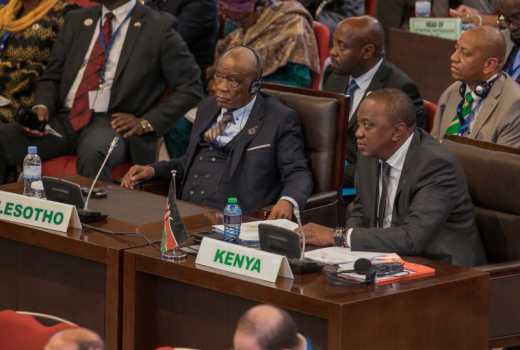×
The Standard e-Paper
Kenya’s Boldest Voice

President Uhuru Kenyatta was among 44 heads of delegations who ratified the landmark African Continental Free Trade Area (AfCFTA) treaty in Kigali, Rwanda, yesterday.
Among the delegations from 54 African States that attended the African Union (AU) Summit in Kigali, 27 leaders including Uhuru signed the second protocol establishing the African Economic Community relating to the free movement of people, right of residence in the signatory countries and right of establishment.